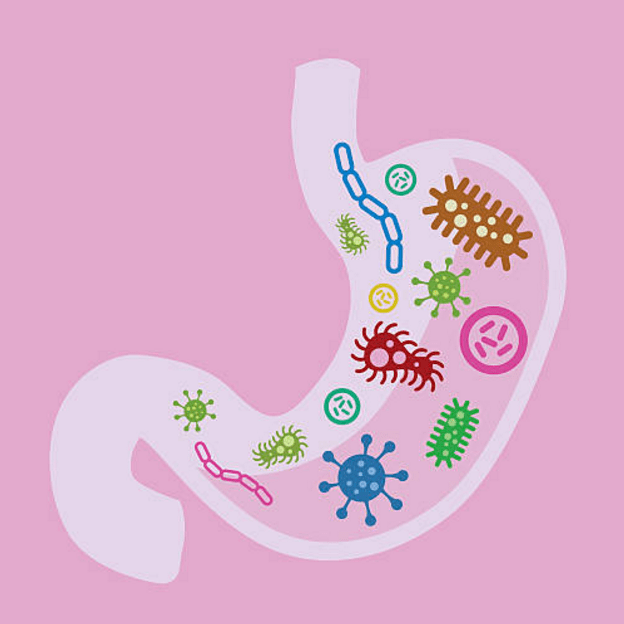Parasitic worm infections, also known as helminthic infections, are a significant global health concern, particularly in developing countries. These parasites infiltrate the human body, typically through contaminated food, water, or soil, and often settle in the digestive tract. Once inside, they feed, grow, reproduce, and disrupt the normal function of the gastrointestinal (GI) system.
This article explores how parasitic worms affect the human digestive system, the symptoms and complications they can cause, and how effective medications like buy ivermectin online can help eliminate them. For those looking to treat or prevent parasitic worm infections, Dosepharmacy offers reliable access to genuine Ivermectin online.
Types of Parasitic Worms That Affect the Digestive System
The most common parasitic worms that inhabit the GI tract include:
- Roundworms (Ascaris lumbricoides)
- Hookworms (Ancylostoma duodenale, Necator americanus)
- Whipworms (Trichuris trichiura)
- Tapeworms (Taenia species)
- Threadworms (Strongyloides stercoralis)
These worms vary in size, lifecycle, and method of infection but all can cause significant gastrointestinal disturbances.
How Worms Enter the Digestive System
Most parasitic worms enter the body via the fecal-oral route, meaning a person consumes microscopic eggs or larvae through:
- Contaminated water
- Undercooked meat or fish
- Unwashed fruits and vegetables
- Contact with infected soil
Once ingested, the parasites travel to the intestines, where they attach to the intestinal wall or migrate to other parts of the digestive system.
Effects on the Digestive System
1. Nutrient Malabsorption
Worms consume the host’s nutrients or damage the intestinal lining, impairing nutrient absorption. This can lead to:
- Vitamin and mineral deficiencies
- Protein loss
- Weight loss despite adequate eating
2. Intestinal Inflammation and Irritation
The presence of worms triggers an immune response, leading to localized inflammation. This can cause:
- Abdominal pain
- Cramping
- Diarrhea or constipation
3. Mechanical Blockage
In severe infestations, the worms can form clusters that block parts of the digestive tract, leading to:
- Bloating
- Severe pain
- Vomiting
- Intestinal obstruction (a medical emergency)
4. Blood Loss and Anemia
Hookworms attach to the intestinal wall and feed on blood. Over time, this causes:
- Chronic blood loss
- Iron-deficiency anemia
- Fatigue and dizziness
5. Immune System Suppression
Some parasites modulate the host’s immune response to survive longer, making individuals more vulnerable to other infections.
6. Digestive Enzyme Disruption
Parasites may interfere with the production or function of digestive enzymes, further compromising digestion and leading to chronic discomfort.
Common Symptoms of Worm Infections
- Persistent diarrhea
- Abdominal discomfort or bloating
- Nausea and vomiting
- Unexplained weight loss
- Loss of appetite or increased hunger
- Itching around the anus (especially in pinworms)
- Visible worms in stool
In children, these symptoms can be more severe and may include:
- Developmental delays
- Poor academic performance
- Weakened immunity
Long-Term Complications
If left untreated, intestinal worm infections can lead to serious complications:
- Chronic anemia
- Intestinal blockage or perforation
- Malnutrition and growth stunting in children
- Liver or lung migration in some species (e.g., Ascaris)
Diagnosis
Doctors usually diagnose parasitic worm infections by analyzing:
- Stool samples for worm eggs or larvae
- Blood tests (e.g., elevated eosinophil count)
- Imaging (ultrasound or CT scan for severe infestations)
Treating Parasitic Infections with Ivermectin
Ivermectin is a powerful antiparasitic medication used to treat various worm infections, particularly:
- Strongyloidiasis (threadworm)
- Onchocerciasis (river blindness)
- Scabies and lice (external parasites)
It works by interfering with the nervous system of the parasite, causing paralysis and death. The dead worms are then naturally expelled from the body through stool.
Benefits of Ivermectin:
- Broad-spectrum antiparasitic action
- Fast-acting with single-dose treatment in many cases
- Well-tolerated with minimal side effects
- Suitable for both adults and children (under medical supervision)
Dosage and Administration
Dosage depends on the type and severity of the infection:
- Typically 200 mcg/kg body weight as a single oral dose
- May be repeated after 7–14 days if necessary
Important Notes:
- Take on an empty stomach with water
- Avoid alcohol during treatment
- Always follow a doctor’s prescription
Side Effects of Ivermectin
Most side effects are mild and temporary, such as:
- Headache
- Dizziness
- Nausea
- Fatigue
Serious reactions are rare but can include allergic responses or neurological effects in heavy infestations.
Where to Buy Ivermectin Online
If you need to purchase Ivermectin, Dosepharmacy is a trusted online source offering:
- Genuine medications
- Affordable prices
- Fast, discreet shipping
- Secure ordering and payment
Buy Ivermectin online from Dosepharmacy to treat parasitic worm infections safely and effectively.
Preventing Future Infections
- Drink only clean, filtered or boiled water
- Wash fruits and vegetables thoroughly
- Cook meat and fish thoroughly
- Wash hands with soap after using the toilet
- Deworm family members and pets regularly
- Practice good hygiene, especially in children
Final Thoughts
Parasitic worms can significantly damage the human digestive system if left untreated. From nutrient depletion to intestinal blockages, their effects can range from mild discomfort to life-threatening complications. Fortunately, with effective medications like Ivermectin, these infections can be controlled and even eliminated quickly.






